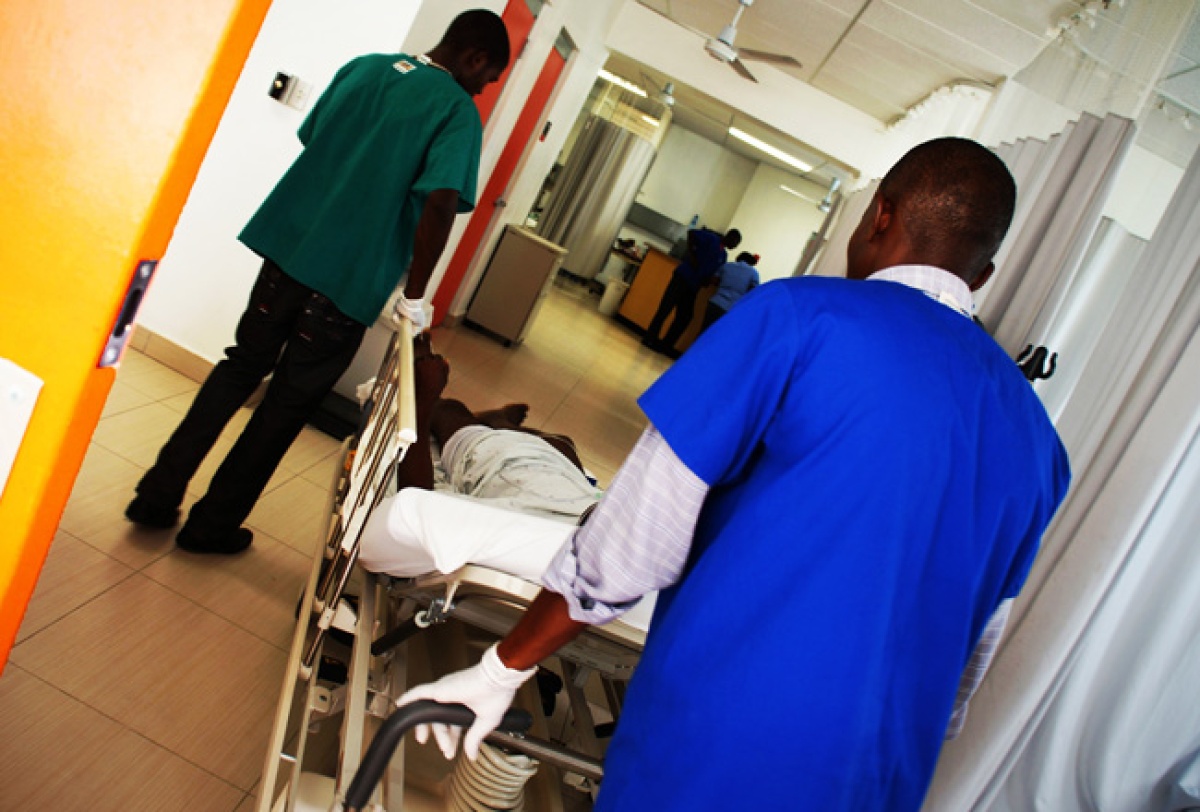An Accident Tests University Hospital’s Emergency Department
Posted on Aug 16, 2013

With the opening of University Hospital in Mirebalais, Haiti, we’ve celebrated several firsts: The first patients logged into the electronic medical record system; the first babies born in the maternity ward; the first cancer patient to receive a lifesaving mastectomy. Then there are the firsts that are less joyful, the inevitabilities that we’ve trained extensively for.
In late July, 14 patients were rushed to University Hospital’s emergency room. They were in the nearby town of Morne Couleuvre, riding in a tap-tap—pickup trucks or buses that have been converted into makeshift taxis—that crashed. The range of traumatic injuries was daunting. Four patients sustained serious head injuries, one suffered a critical cervical spine fracture, and another had a fractured femur.
Globally, traffic accidents kill approximately 1.24 million people each year, according to the World Health Organization. More than 90 percent of these deaths occur in low- and middle-income countries.
Tap-tap accidents occur with depressing frequency in Haiti, and PIH has seen the horrific consequences countless times over the past 25 years. In Mountains Beyond Mountains, author Tracy Kidder details a deadly crash that PIH co-founders Paul Farmer and Ophelia Dahl came upon during their early years in Haiti. “Accidents happen. Sure,” Kidder writes. “But not every bad thing that happens is an accident. There was nothing accidental about the wretchedness of the road down Morne Kabrit or the overloaded tap-tap, or the desperation of a peasant woman who had to get to the market and make a sale because others in her family would go hungry.”
In Haiti’s Central Plateau, roads are still rough, tap-taps are still overloaded, and poverty is still pervasive. But the network of PIH/Zanmi Lasante facilities has grown more robust each year, forging a spectrum of care that spans from small clinics to the 300-bed University Hospital, which offers many services and technologies that were never before available in this area. The 14 patients who were rushed to the hospital in the wake of the accident put those services and technologies to the test. Clinicians from both the emergency department and surgical department worked seamlessly to provide timely, thorough, and compassionate care.
All of the patients survived.
“Having a modern and well-equipped emergency department and a highly trained team will dramatically improve our ability to reduce morbidity and mortality related to trauma in the Central Plateau,” says Dr. Regan Marsh, the director of emergency services at University Hospital. “The ED physicians and nurses are able to quickly assess, stabilize, and manage both minor and major injuries—and have access to essential resources, such as bedside ultrasound and CT scans.”
There will be many more accidents in the coming months and years. With your support, we’ll be prepared.

